Interpreting Facebook's encryption stable currency Libra, this article is enough.
On the afternoon of June 18th, Beijing time, the official Libra website of Facebook's global digital cryptocurrency was officially launched, and the Libra Stabilization White Paper has also been released. According to official sources, the emergence of Libra Stabilization Coin will serve as a simple global monetary and financial infrastructure that benefits billions of people.
There are currently 1.7 billion people in the world who do not have bank accounts, accounting for 31% of the global population. In the traditional financial sector, cross-border transfer remittances are cumbersome and take 3-5 business days to complete. And because of the use of cash, the United States has to steal $40 billion in cash a year. Those who do not have a bank account will have to pay a fee of more than $4 per month in order to participate in social finance.
The emergence of Libra Stabilizing Coin allows everyone to participate in the financial world. It has the functions of blockchain finance and traditional financial features such as stable value, fast trading, scalability and security. Facebook has redefined "money" this time and has changed the global economy.
With the official release of the Facebook Stabilizer Libra white paper, all previous rumors and rumors have been broken. As an affiliate of the blockchain, what exactly is Facebook's Libra Stabilizer? What kind of responsibility will it shoulder? The block rhythm BlockBeats will give you a comprehensive introduction to this freely flowing number on a global scale.
- Thunder is loud, rain is small, Facebook is so currency
- For Facebook's currency, the industry's big coffee is so commented
- Mark Zuckerberg's personal letter: Libra released, an exciting journey begins
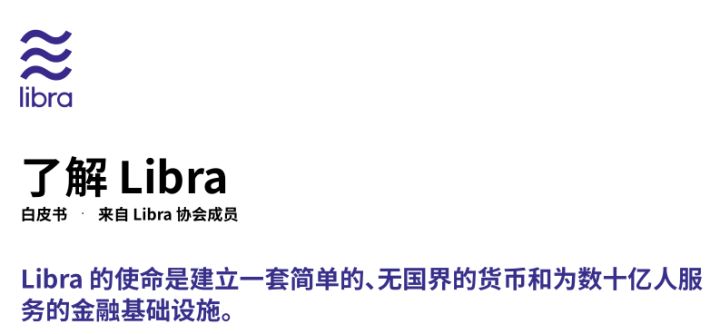
What is Facebook Libra?
Libra is a stable currency, a classification of cryptocurrencies in the digital cryptocurrency industry.
What is a stable currency? For readers unfamiliar with the digital cryptocurrency industry, you may not understand this concept, you can understand it as a point-integration system that locks in value. A blockchain is equivalent to a system that cannot be tampered with and cannot be destroyed. On this system, a point can be issued and the points can be traded. Stabilizing coins is such a "point" and its value is stable.
Take the Libra Blockchain blockchain as an example. On this blockchain system, a Libra integral is equal to $1, and the price is stable. If you have 10 Libras in your account, it means you have $10 in your hand and you can spend that part of the Libra. You can also pay for Libra or you can exchange Libra for money. According to the Libra white paper, Libra can only be purchased from Libra through fiat currency 1:1, and the fiat money will also be transferred to the reserve. The size of the reserve determines the actual value of Libra, which may fluctuate but is small.
According to the white paper, Libra runs on top of Libra Blockchain, a global financial infrastructure that scales to billions of accounts and supports high transaction throughput. In other words, the capacity of this blockchain is enough to support the trading volume of billions of people around the world.
What can it be used for?
Before the Facebook issue, there were many influential stable currencies in the digital cryptocurrency market, including USDT, GUSD, PAX and so on. These stable currencies are mainly used for deposits and hedging in the digital cryptocurrency market. That is, if someone wants to speculate on coins, he can spend money to buy stable coins and then buy and sell other digital cryptocurrencies in the market, such as bitcoin. In fact, the main goal of the stable currency is global payment, but this function is rarely used because of the disorderly market.
However, from the list of partners published by Facebook, we can see the summary use of this stable currency: payment.
Facebook has just released a stable currency called Libra, which was actually released under the management of an organization called the Libra Association. This organization is sponsored by Facebook and is run by dozens of organizations. Participants who were familiar with the project said that organizations and companies that want to join the Libra blockchain need to pay $10 million in membership fees to Facebook , and then they can run nodes on the blockchain for data viewing and Permission to write data. There are currently 28 listed partners and will increase to 100 in the future. Facebook can generate $1 billion in revenue, which is equivalent to $1 billion in financing for the Libra project.
According to Libra's white paper, the Libra Association will give priority to members of the association to encourage members to use Libra for payment within their own ecology. The founding members also need to work hard to innovate technically so that Libra can be compliant and applied on a large scale. . In addition, the Libra Association will also encourage exchanges to place trades on them, but only on compliant exchanges.
According to TheBlock's breakdown of these institutions, BlockBeats found that it is divided into investment institutions, blockchains, social media, communications companies, e-commerce, shared travel, non-profit organizations, music, travel, and payment . These industries have high expectations and participation in digital cryptocurrencies and related payment services, and they need to pay $10 million in membership fees to participate in the Facebook Libra project. The Board of Directors has 1 vote for every $10 million, and a single founding member can only get 1 vote or 1% of the total votes. This can effectively prevent the monopoly of the consortium.
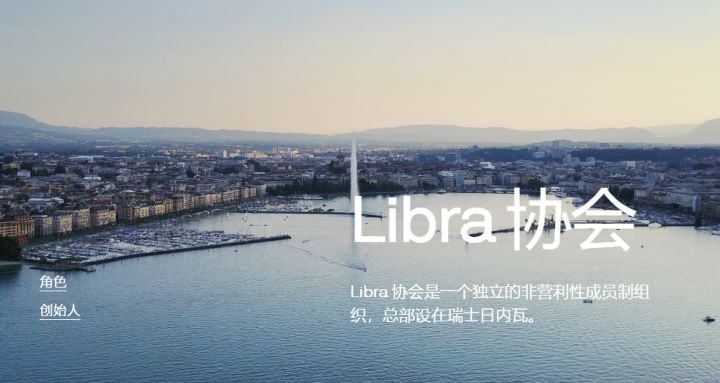
Among the 29 partner organizations, we have seen Internet companies such as Uber, eBay, and PayPal, as well as the logos of established financial institutions such as Mastercard, VISA, Andreessen Horowitz, and USV. In the e-commerce industry, eBay, the world's leading e-commerce platform, Mercado Pago, the Argentine e-commerce site, and Farfetch, an online luxury website; there are also some well-known investment institutions, such as the Andreessen Horowitz fund founded by Apple co-founder Marc Andreessen. Twitter and Coinbase investors Union Square Ventures, etc.; of course, blockchain companies that provide technical support for Libra Blockchain, such as Coinbase, BisonTrails, Xapo, etc.; payment companies, Mastercard, Visa, Stripe, Paypal, etc. Involved, they will become the main payment participants outside the Facebook ecosystem; Uber and Lyft are the leading players in the shared ecosystem and mobile Internet, and are also participants; in addition, mobile operators such as Vodafone and Iliad have joined the Libra Blockchain.
Block Blocks at this block can conclude that users can buy Libra stable coins directly and then spend money on channels such as Facebook or Paypal, which can be used to shop on eBay, invest, charge, or Used to pay for taxi fares.
Seeing this, do you think this Libra is like that, level is average? If you really think so, then you are wrong. This stable currency has the potential to completely change the current pattern of the Internet.
Before the release of the Facebook Libra Blockchain white paper, there was media speculation that Facebook Libra Stabilization Coin would be used primarily for Facebook's payment functions for Messenger, WhatsApp and Instagram. Because as early as December 2018, Bloomberg broke out that Facebook is testing the payment function in WhatsApp. After the white paper was released on the afternoon of June 18th, we can see that payment is the main function of Libra.
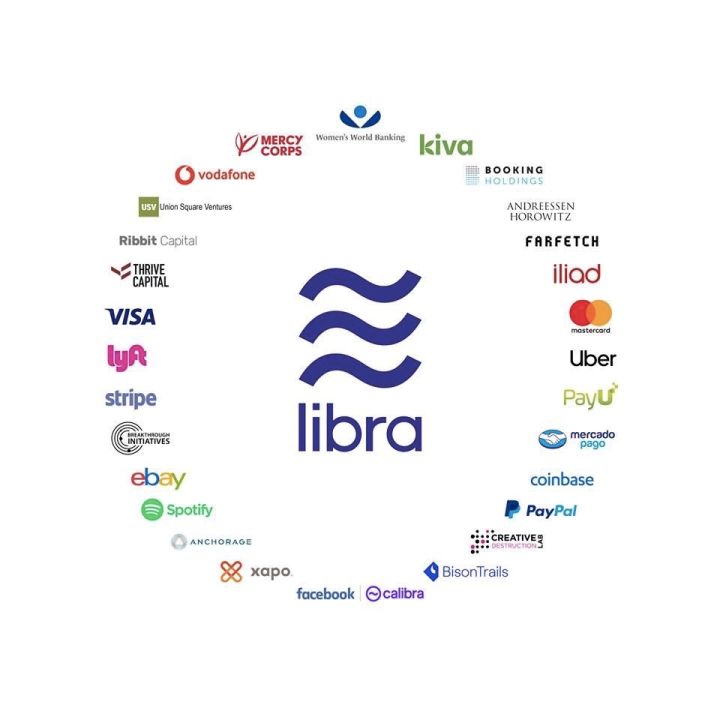
Is the fee received soft?
The emergence of Facebook Libra will directly push Facebook's strategic advancement, which will have a huge impact on the profit model and global digital currency. Meng Yan gave us a lot of inspiration in the WeChat article "Facebook Digital Currency: Origin, Significance and Influence" last weekend.
As we saw above, Facebook can earn a lot of affiliate fees, such as billions of dollars, through the addition of partners. But this is only a short-term income, and Facebook can actually get a huge amount of revenue by charging a credit card-like transfer fee or paying a handling fee.
Meng Yan mentioned that Facebook Libra may carry a transaction volume of 50-80 trillion US dollars in the future. If a fee of two-thousandths of a fee is charged for each fee , then the fee income of at least $100 billion a year will exceed the current Facebook total. Annual revenue. If Facebook is a little more stimulating, or raising the proportion of fees, then this figure will exceed $200 billion.
The cross-border payment market has a market of US$125 trillion per year. The exchange rate difference and the handling fee for cross-border credit card payment, more than 5% of the handling fee and service fee, make people who go abroad or do international trade feel heartbroken and because Digital cryptocurrencies are not affected by policies and regions like traditional digital currencies. As long as there is Internet access and blockchains can be connected, they can be transferred through the blockchain. This gives Facebook Libra the characteristics of a global currency. Whether it's a cross-border transfer or a cross-border payment, it's easy to implement. Meng Yan believes that as long as Facebook reduces the cross-border payment processing fee by an order of magnitude (which can be easily achieved in the blockchain field), it can kill the traditional exchange-exchange business.
In addition, we have seen that Libra's partner list also includes a number of investment institutions, which makes it possible for Facebook Libra to become a financial instrument. Facebook can also earn more income from financial activities.
Control regional economy
During the Cold War, the United States established a global currency system in the order of the dollar. Today, as long as international business is involved, it is basically settled in US dollars. However, with several economic recessions and crises, the dollar's global currency status is declining step by step. This has a lot to do with the US dollar being the currency issued by the US government, because the US government can print money freely, regardless of the ideas of other participants in the monetary system. For every US dollar bill issued in the United States, the foreign exchange reserves of other countries will depreciate.
The emergence of blockchain technology has solved this problem of spamming and super-issue. In the blockchain system, every time a digital cryptocurrency (also called Token or Coin) is issued, it is recorded on the blockchain. If Libra can be used globally, it must solve the problem that Facebook can't release new Libra at will. Every time Facebook releases a Libra, it needs to deposit $1 or equivalent in other countries or regional currencies into its own bank.
Meng Yan said that Libra will anchor a currency basket, which can be deposited in a variety of legal currencies, or in a variety of legal currencies. After Facebook Libra Blockchain has been running for several years, 2.6 billion Facebook eco users have experienced the convenience that Libra brings to life, and then the e-commerce, games, services and financial digital ecosystems that are attached to Facebook will undergo radical changes, all Services will no longer be denominated in US dollars or traditional currencies, but will be valued in Libra.
When global Facebook users establish trust in Libra's local currency, people believe that Libra is equal to one dollar or 6.9 yuan. At that time, people no longer need to convert Libra into French currency, and there is no longer a third-party asset support scenario. All passes. Both are Libra. Facebook can take on the acceptance of Libra-priced services, finance, assets and more.
Simply put, once 2.6 billion users accept Facebook Libra, Facebook will become the central bank of the country of 2.6 billion people in a few years, infiltrating the economy. At the same time, it will also make a difference in areas such as taxation, supervision, and crime prevention, because the flow of funds will also be transparent and open (anonymous). When Libra works with the government, we will see its greater political and economic influence.
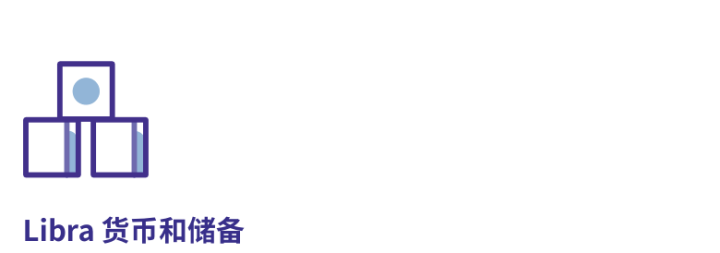
So, can I fire Libra?
The answer is hard, but it can be used.
Unlike other blockchains and blockchain token systems, Facebook has worked hard on technology and regulation, making it difficult for ordinary investors to find opportunities to make money.
The emergence of Facebook Libra Stabilization Coin has caused a lot of speculation and controversy. The main arguments are cryptocurrency compliance and privacy protection. As BlockBeats mentioned above, these high-quality features of Facebook Libra Stabilizing Coins are being constrained by traditional laws and regulations, making it difficult to fully function.
As early as May 2018, Facebook began research and development of digital cryptocurrency. At the time, he had announced in the media that David Marcus, a former board member of Coinbase, joined the Facebook team and led Facebook's blockchain development work. Before David began researching the blockchain, Morgan Beller of the Facebook development team was already in charge of the R&D work of the blockchain.
According to foreign media TheBlock, it is from this time that Facebook began to invest heavily in blockchain projects and began to think about how to integrate stable coins into the Facebook ecosystem.
In May of this year, Facebook registered Libra Network LLC in Geneva. According to the official Swiss registration document, this is a blockchain technology development company. Soon the BBC digs more news, saying that Facebook will release Libra stable coins in the first quarter of 2020, and will test Libra stable coins in more than a dozen countries in the second half of 2019. According to the Libra white paper, Libra will be released in the first half of 2020.
The Wall Street Journal had previously reported that Facebook was negotiating with the US Commodity Futures Trading Commission to issue money in the US and sell it to the general public, but Facebook did not submit official documents. The head of the US Commodity Futures Trading Commission said that he is more worried that Facebook's currency issue may not be within the jurisdiction of this department.
The Financial Times reported that Facebook is working with Standard Chartered Bank lobbyist Ed Bowles, who is helping Facebook to advance the compliance of digital cryptocurrencies at the policy level.
In addition, Libra's coinage rights are still in the hands of Facebook or the Libra Association. The number of shares issued and the price fluctuations are all decided by the association. Ordinary investors have no control over Libra's market liquidity and naturally cannot influence its price. The only chance to benefit ordinary investors is to embrace the digital encryption world and buy shares in the Libra Association's partner list to earn some dividends.
Perhaps in the future, there will be a means of depositing funds between users and users. Zhang San will give Li 4 $10, Li Si will turn Zhang San to 9 Libra, and Li Si will earn a commission. This is also a way for users who don't have a bank card and no authentication. Of course, you can also use it as a safe haven currency on some compliant exchanges.
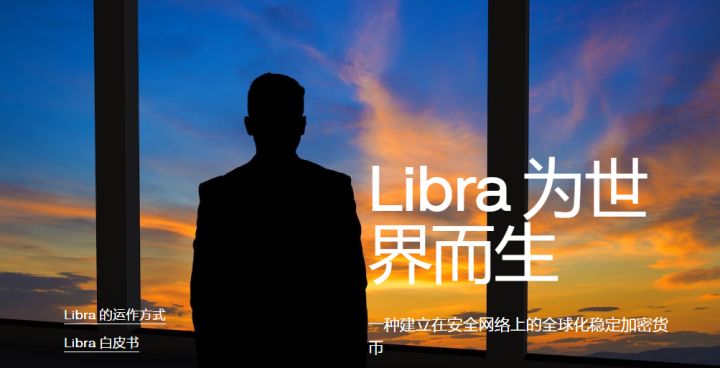
Is it related to us in China?
Some people think that Libra is something similar to Q currency issued by Facebook. In fact, it can be understood. But Libra is more transparent than Q coins and has a larger application scenario. In fact, BlockBeats is more willing to interpret it as a foreign Alipay balance, users deposit cash into Facebook, exchange Libra, and then pay under Facebook's big tree.
This is a great thing for Messenger, Instagram, and WhatsApp under Facebook. They can finally transfer money in their lives faster and more conveniently on their mobile phones, and this feature has been popular in China for many years.
So, will Tencent or Alibaba issue such a digital stable currency? The answer is no, because the central bank is still in the research stage of digital currency.
For the Facebook Libra project, Chinese users don't have to envy at all. In fact, we should be worried from some angles, because the game between the global economic powers will be carried out in the form of digital cryptocurrency. This can be seen from Facebook's testing in dozens of countries.
Besides, it is very difficult for Facebook to enter China, let alone the digital cryptocurrency it issued. However, Libra has a Chinese official website, and maybe one day it will come in. Still use our Alipay and WeChat to see foreign netizens get out of the heat.
We will continue to update Blocking; if you have any questions or suggestions, please contact us!
Was this article helpful?
93 out of 132 found this helpful
Related articles
- Interpretation of the White Paper in Facebook: Top 10 Highlights of the Top 10, Sword Refers to Inclusive Finance
- OTC is a hotbed of money laundering, can the exchange stay out of the way?
- Babbitt column | The next global Internet central bank? ——On Facebook’s release of digital currency white paper
- Babbitt Column | Facebook Dimension to Fight Tencent Ali, the United States will seize digital hegemony?
- I am afraid that there is only one sigh behind the frenzy of the collective outbreak of privacy coins.
- How do you view the BTCB issued by the currency security?
- Why is Facebook's GlobalCoin so important?





